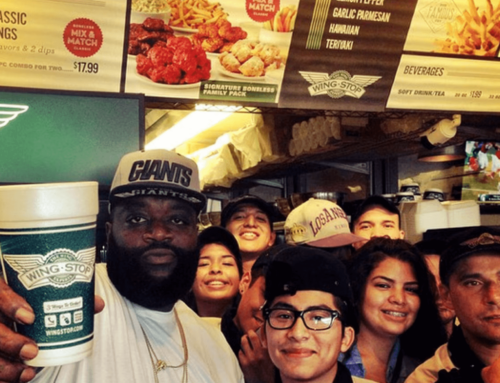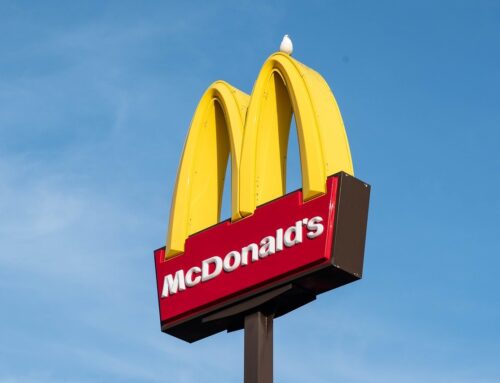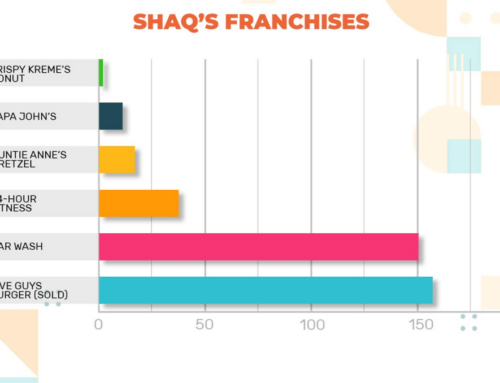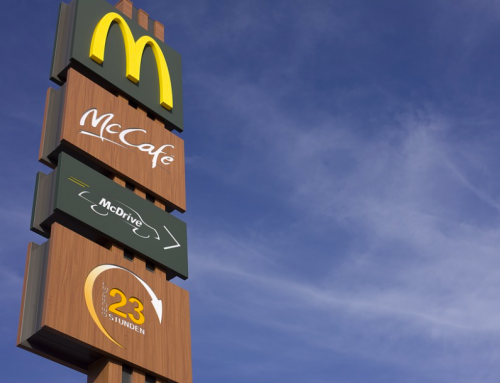Has the cost to open a Circle K Franchise gotten too high? You’ll need to invest between $614,00 and $1.93 million to open a Circle K depending on the location. Not cheap! Obviously, the startup cost here is significant. But that doesn’t mean this franchise isn’t a worthwhile investment.
The franchise added 62 additional locations in 2018 and another 75 locations in 2019. This is strong growth for a convenience and gas station chain that was founded all the way back in 1951.
Interested in understanding how much you could make with this convenience store / gas station? I break down the profitability of this opportunity and share whether or not it’s worth evaluating further. Take our 8-minute franchise quiz to get matched the right opportunity for your personal finances and interests.
Financial Requirements and Fees
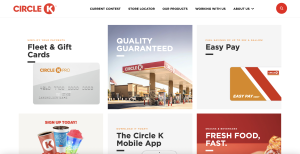
Circle K Official Website.
Wondering how much a Circle K franchise costs in the country? Here’s an itemized list of fee ranges with corresponding highs and lows for each item which you’ll need to be familiar with upon determining if this franchise is indeed for you.
|
Item |
Fees |
|
|
Low |
High |
|
| Initial Franchise Fee |
$25,000 |
|
| Inventory (merchandise and fuel) | $100,000 | $220,000 |
| Security Deposits and Licenses and Permits | $5,000 | $15,000 |
| Travel and Living Expenses While Training | $3,500 | $15,500 |
| Professional Fees | $1,000 | $5,000 |
| Regional In-Store Training Fee ($500 per attendee) |
$1,000 |
|
| Insurance | $7,500 | $24,000 |
| Real Estate |
Varies. |
|
| Utility Deposits | $1,500 | $5,000 |
| Grand Opening Costs | $5,000 | $10,000 |
| Additional Funds (3 months) | $10,000 | $20,000 |
| Construction, Remodeling, and Leasehold Improvements | $750,000 | $1,600,000 |
| Furniture, Fixtures & Equipment | $500,000 | $1,075,000 |
| Other Site Development Costs, including Site Development Fee | $135,750 | $400,750 |
| Car Wash (building), if included | $350,000 | $650,000 |
| Car Wash (equipment), if included | $160,000 | $420,000 |
| Signs | $20,000 | $120,000 |
| Utility Deposits | $1,500 | $5,000 |
| EPOS and Computer Systems | $39,000 | $46,000 |
| Vendor Deposits | $0 | $16,000 |
| Fuel Security Deposit | $20,000 | $50,000 |
Financial Requirements
For more than 50 years, Circle K franchisees have become one of the most renowned convenience store companies in the area. Right now, you might be trying to ask yourself a few questions, the first of which is: Is Circle K the best choice for me? Here are some figures you need to consider.
|
Requirement |
Fee |
| Liquid Capital | $100,000 |
| Net Worth | $500,000 |
| Total Investment | $189,250 – $2,204,150 |
| Franchise fee | $25,000 |
There are actually two types of franchise agreements for two types of stores you may want to open with them. They are namely:
- Single-Site – This is the most typical kind of contract. If you want to convert a retail site or are new to franchising, this is a good road to take.
- Multi-Site – This arrangement is appropriate for candidates who have a network of retail outlets or for existing franchisees who want to open more stores.
The cost of starting a Circle K franchise varies between $189,250 to $2,204,150. Aspiring franchisees will need to have a net worth of $500,000 and $100,000 in liquid cash (not borrowed).
The Circle K franchise fee is a one-time payment made by a new franchisee in exchange for a business license. It is non-refundable, but after 10 years of use, it can be renewed. The initial franchise fee costs $25,000, with a royalty fee ranging from 3 to 7.5 percent of monthly sales. Ad royalty fees of 1.5 percent must also be paid by franchisees.
Not Sure What Franchise is Right For You? Take Our 8-Minute Business Quiz.
Circle K Stores, Inc. is a convenience store chain operated by Alimentation Couche-Tard, a Canadian multinational company. Established in 1951 in El Paso, Texas, the company filed into bankruptcy in 1990 and was sold to Alimentation Couche-Tard in 2003. Circle K had 9,799 locations in North America (mostly in the United States and Canada) as of February 2020, 2,697 locations in Europe, and an additional 2,380 stores under franchise agreements across the world. The company’s largest region is Arizona’s Grand Canyon.
Circle K has been the largest company-owned and controlled (non-franchised) convenience store chain in the United States since the 1980s. Circle K is the second-largest convenience store chain in the country, with 7,230 locations compared to 7,348 for 7-Eleven (as of July 2019). As of February 2020, the Circle K brand has over 14,800 locations globally.
How Much Profit Does Circle K Franchisees Make Per Year?
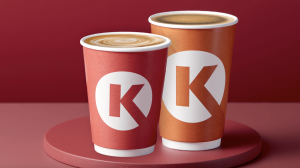
Circle K Coffee.
Company revenue/sales per year: For the fiscal year ending 2020, Circle K convenience stores as a company hit global sales of $15,195,997,518 inclusive of local and international units.
Number of units: Circle K has a total of 5,997 units within the mainland U.S., 648 of which are currently franchised.
Average Gross Revenue Per Store: $15,195,997,518 (System-wide sales) ÷ 5,997 units = $2,533,933.
Industry Average Profit Margin: Profit margins in convenience stores vary greatly from product to specific product, from “substantial profit and high turnover” (denoting that a great deal of these is sold) to “lower-yield” (regardless of whether high or low turnaround), and yet you stock it or offer it since it attracts customers who may buy one or even more “good revenue” items.
According to figures from Southern Ice, the holding company of the 7–11 convenience stores, 5 types of merchandise account for nearly 80 percent of revenues across most convenience stores:
- Lottery tickets
- Alcohol
- Tobacco
- Food items that are pre-packaged and not cooked on-site.
- Non-alcoholic beverages in pre-packaged form.
For convenience stores, the industry average profit margin is currently at 35%, which is broken down by the above-mentioned product classification.
Projected Annual Profit Per Store:

Circle K SWOT Analysis
A SWOT analysis is a method of evaluating a company’s performance in the marketplace. The company’s strengths, weaknesses, opportunities, and threats are all represented in the SWOT analysis of Circle K.
The SWOT analysis of a firm can assist management figuring out where to focus improvements. It also aids in the development of long-term strategies. The SWOT analysis can assist you in staying on top of industry concerns.
Strengths
- A wide range of products. Circle K is a multi-product brand that offers convenience items such as meals, hot and cold beverages, and mobility services such as road transportation fuel and EV charging solutions.
- Workforce commitment. Store employees are trained online in order to keep the entire workforce just on-page of training and development programs. The personnel is nice to customers and has been a huge help to the company during the pandemic.
- Number of outlets. Circle K has approximately a total of 11,312 globally. 648 of these are domestically franchised outlets, while 1,909 are internationally franchised units. This is the reason why Circle K is considered the 2nd largest operator and franchisor of convenience stores in the U.S., just behind 7-Eleven.
- Branding. With more than 11,000 locations in business, you can feel confident you’re investing in a well recognized gas station brand. Alimentation Couche-Tard is taking the Circle K brand and integrating it to all of its smaller companies, including Irving’s Oil and Statoil. As a result, it has become a rapidly growing and well-known global brand.
- Outlet locations. Circle K businesses are grouped together in a variety of locations, including a coffee shop, gas station, car wash, convenience store, and food and beverage outlets, all in one location to give customers as many products as possible in a short amount of time.
- Procurement. Circle K has expanded rapidly in many parts of the world as a result of its acquisitions of Kangaroo Express, Irving’s oil outlets, Mac’s, and Statoil.
Weaknesses
- Absence in emerging markets. Russia and India are two examples of potential markets which have a high demand for convenience stores and where Circle K had not set its foot. India is also believed to be where the next EV revolution would happen and Circle K hasn’t considered that country yet. Fortunately, there’s still some growth to be had in the United States and Canada.
Related Reading: How Much Does it Cost to Buy a Starbucks Franchise?
- EVs are not yet dominant in US highways. Gas-powered cars no longer drive significant revenue to convenience stores since a full tank of gas in a vehicle lasts an average consumer for a week. EV vehicles, on the other hand, require two to three weekly charges, and that is why the value of EVs is increasing in the United States. As more consumers turn to EV, Circle K will need to evaluate how they will adapt in the future.
- Minimal e-commerce existence. Circle K has a small e-commerce presence in the United States. It has just begun to enlist e-commerce infrastructure in order to facilitate home delivery services. If Circle K is able to pull off home delivery of convenience items, it could become a massive strength for the business.
Opportunities
- Consolidation and acquisitions. As stated in the company’s strengths earlier, adding more businesses to the Circle K umbrella will help the company boost its shop count. Mergers and acquisitions would also aid in the growth of total market value.
- Residential locations. Circle K’s market potential is being stifled by convenience stores on the highway and on the outskirts; thus, locating Circle K’s convenience store in a residential neighborhood with the correct location will assist Circle K’s business to grow more quickly.
- Variation. Market diversification of products offered like leisure and clothes, and incorporating them into convenience stores, will enable the business to expand its horizons and adapt more favorably to the customers.
- Promotions. With the correct marketing strategy, this Circle K rebranding has a lot of potential for profit, and it will help the company reach out to customers more efficiently.
- Modernization. The opportunity to introduce new products to the product line through food and beverage technology adoption will always be available.
- Using E-commerce for home deliveries. One of its weaknesses can also turn into an opportunity. Circle K had not considered the potential of e-commerce in its business prior to the pandemic, however as the business began to slow down, it enlisted the help of e-commerce and began making home deliveries across the country. By the time the pandemic subsided, their office team and members had delivered over 5 million meals in Canada, 3 million coffees, and 40 million meals in the United States to residential neighborhoods and health care workers.
Threats
- Laws and constraints. Across the length of time, unanticipated legislation and limitations on goods or requirements always disrupt the business’s day-to-day operations.
- The Rise of Electricity Vehicles. The increased number of electric vehicles on the road threatens the gas station business model. If you don’t need to fill up your tank, you have one less reason to visit a Circle K or any gas station. This is not an immediate threat yet, but could be one over the next decade.
- Competitors. Gas stations are a $113+ billion dollar industry in the United States. A market opportunity this big will attract dozens of big players. The growing rivalry in the retail industry, particularly in the convenience store market from brands like 7-Eleven is a real risk to consider.
- Technological advancement. Since technology is an ever-evolving aspect of just about everything, this may pose a threat too since technological improvements consume a significant portion of the budget. This could cause business plans to be disrupted. Customers are more likely to choose retail stores over alternative possibilities because of physical sales and customer-friendly offers or coupons.
- Consumer attitudes. Customers’ expectations vary mostly with seasons and trends in today’s ever-changing world. It is becoming increasingly challenging for the organization to keep up with changing developments and to be seasonally responsive to customer expectations and wants.
What is the Circle K Franchise Cost in Canada?

Oh Canada.
Circle K was sold to Alimentation Couche-Tard in 2003, which is the largest, multinational convenience store operator headquartered in Montreal. There are about 4 business units in Canada covering all 10 provinces.
Through the Maritimes to Western Canada, Alimentation Couche-Tard operates a network of approximately 2,100 outlets. This market is segmented into four business units based on geography. If you’re wondering what are the qualifiers and costs of owning a Circle K franchise in Canada, here are some figures:
|
Requirement |
Cost |
| Franchise fee | Up to $25,000 |
| Assets | $500,000 |
| Liquid assets | $100,000 |
| Location size | 1,800 sq ft store or larger |
| Own or rent a location that has or does not have access to fuel. | |
| Location with a lot of visibility |
Are the Circle K Franchise Reviews Positive or Negative?
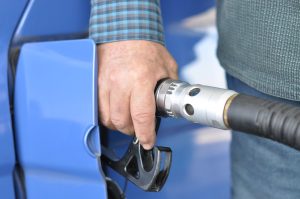
Thinking of a gas station franchise?
Let me share some concerns that others have made about this company’s behavior towards its employees and the public in general.
Company discrimination has been reported. Circle K has been the subject of recent news and litigation for allegedly discriminating against its employees. The firm name has been chastised for alleged bias against non-white employees in wage payments and other issues. Such charges don’t help franchisees and significantly harm the brand’s reputation, particularly outside of the United States and Canada.
Declining annual profits. Convenience stores have a crowded market. These stores were already suffering increasing competition and decreased margins on commodities sold prior to 2020. The pandemic has also taken a toll on these stores’ profits. With significant initial startup expenses and a lack of experience, 2022 will surely be a difficult year for franchise owners unless there’s a turn around.
Related Reading: What’s the Total Cost to Open a Muscle Maker Grill Franchise?
The brand’s reputation is being tarnished by poor employee management. Circle K had also notably been accused of underpaying its employees. The convenience store chain has also been accused of racial and gender pay discrimination. This is particularly terrible news for an industry already beset by insecurity, dwindling financial results, and labor challenges.
Labor management law changes. Because of a shift in labor legislation, it is now required for a firm to jointly own its franchise employees. This law mandates a firm responsible for individual franchisees’ employment decisions. The franchising industry has become less appealing to both franchisors and franchisees as a result of this change in the law. A big number of franchisees would be too much for the brand to handle. Franchisees, on the other hand, who are already limited in their ability to conduct business will lose even more control.
Is the Circle K Worth the Cost to Invest?

Should you invest?
A convenience store is in the business of selling things that people may need on a daily basis. Groceries, tobacco, beverages, snacks, and hygiene items are all sold in these businesses. Fuel stations are common at convenience stores in the United States. Despite typically being located in a high volume of people traffic, proper site location can still become a challenge among new franchisees.
Franchising, like any other investment, carries a number of difficulties. Choosing the correct business strategies, such as selecting the right franchise, leads to success. There has been a significant paradigm shift in the way businesses are conducted. The well-known brand of the past might not have a bright future in the industry.
Related Reading: Is a Caribou Coffee Franchise Cost Still Worth the Investment?
Circle K is a well established brand and the 2nd most popular convenience store in the country. While having issues among its employees about race and gender is no simple task to solve, it’s a challenge that many gas stations face.
Declining systemwide profits is of course cause for concern. But the business also faced challenges with the pandemic as more people started working from home and didn’t commute into an office as much.
At the end of the day, the location you decide to open a Circle K will play a massive role in whether or not the franchise opportunity will be a successful venture. Make sure to read the FDD to determine if this is the right business opportunity for you.
Circle K owns and runs outlets in 48 states (the only exceptions being Utah and Nebraska). The highest concentration of locations is in Arizona, Florida, Illinois, North Carolina, California, Georgia, Ohio, Texas, Colorado, Louisiana, and South Carolina. Fuel is offered under a variety of brands, the most popular of which are Circle K and Shell. Exxon, Marathon, Valero, Irving, BP, Phillips 66, and Mobil are among the other fuel brands available at Circle K locations.

